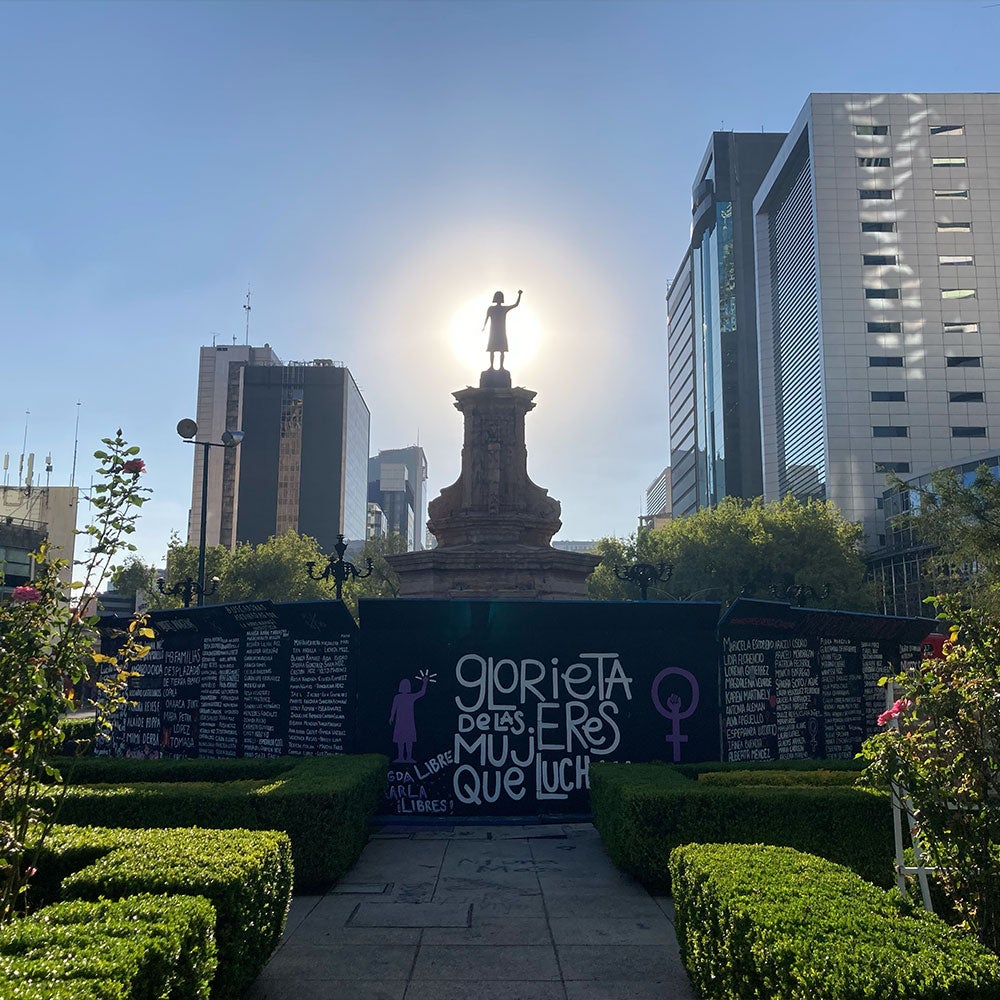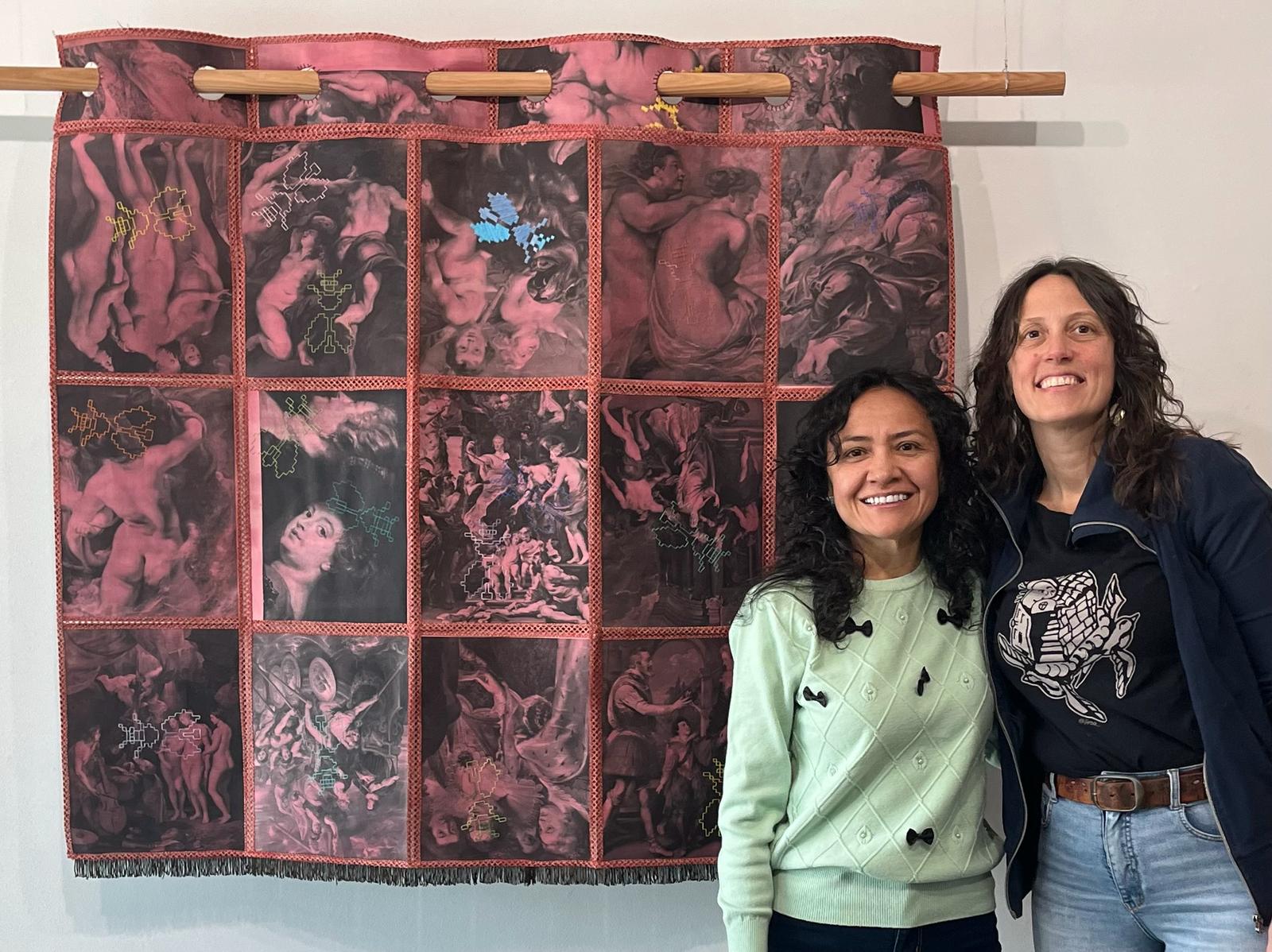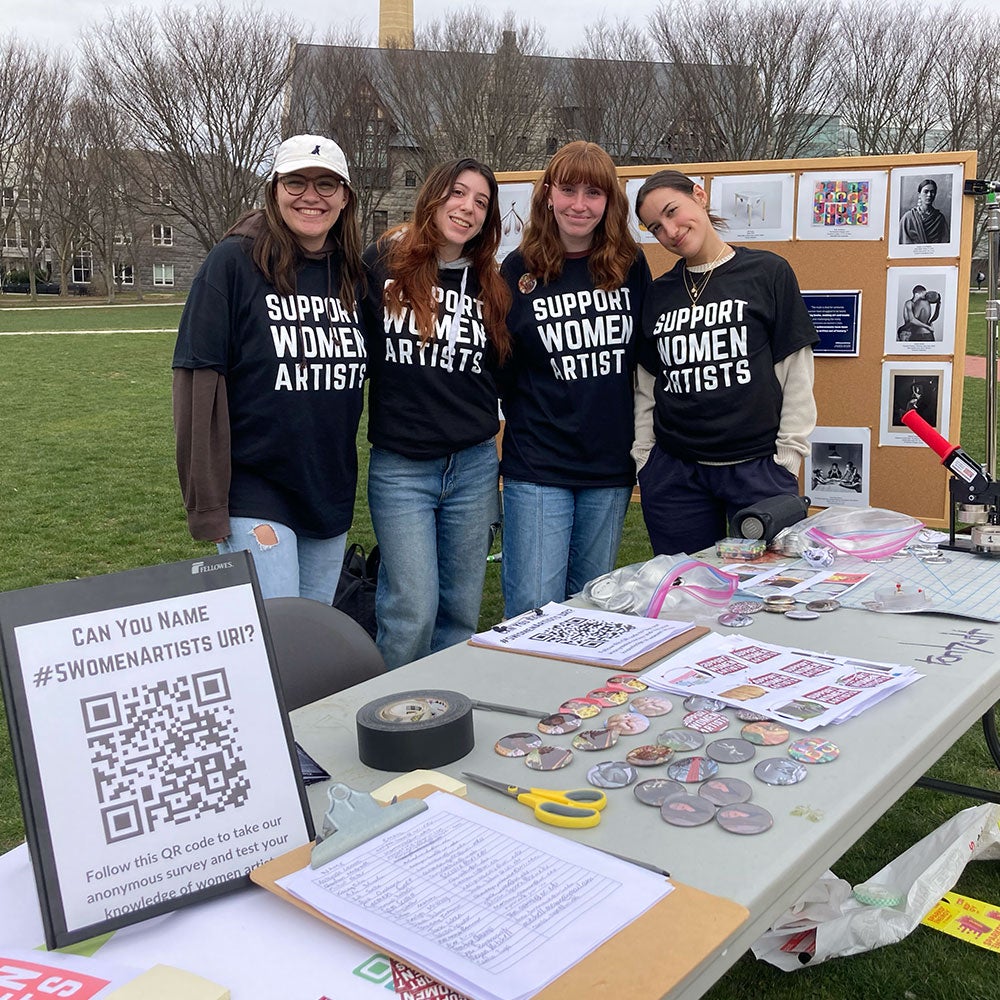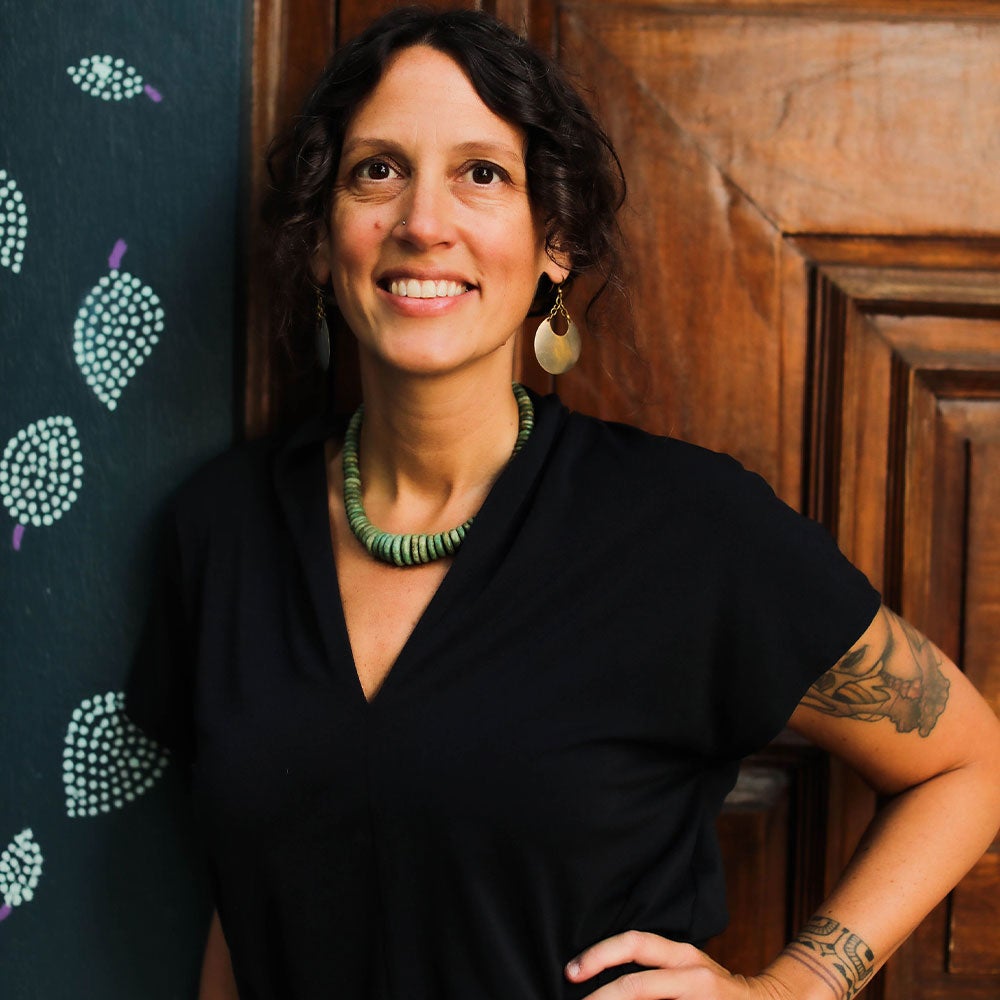KINGSTON, RI – February 3 – Can you name five female artists? No Googling.
Most people can only name three, and it’s usually the same names echoed over and again. Art history professor Erin L. McCutcheon brought this question to the URI campus and surveyed over 300 people with her students. In the end, only 12% could name women artists. The idea was inspired by The National Museum of Women in the Arts that started in 2016.
It’s investigative practices like this that positioned McCutcheon for her new appointment to the College Art Association’s Committee on Women in the Arts (CWA) for a three-year term (2025-28). As a member of the committee, McCutcheon will assist in their work to promote the scholarly study and recognition of women’s contributions to the visual arts and to critical and art-historical studies; advocate for feminist scholarship and activism in art; develop partnerships with organizations with compatible missions; monitor the status of women in the visual-arts professions; provide historical and current resources on feminist issues; and support emerging artists and scholars in their careers.
Prior to earning her PhD from Tulane University in 2021 in Latin American studies and art history, McCutcheon worked toward her masters at the University of Leeds. Here, she met art historian Griselda Pollock who was one of the founders of feminist approaches to art history that developed in the 1970s. McCutcheon always had an interest in Mexico and artist Frida Khalo, but did not have a clear direction of what she wanted to study. It was Pollock that exposed her to what was happening in the 1970s and 1980s in the art world and the women’s movement.
This opened a new world up to McCutcheon in terms of the depth of women’s artistry happening across Mexico and Latin America. When artists from these areas are studied in US classrooms, they are often presented as marginalized figures. However, she found that to be entirely untrue historically. While conducting research for her PhD, she was living in Mexico City where she began building her work via interviews with local artists.

“Often when we talk about artists who have been underrepresented in art history we rely on the notion that they’re invisible, or they’re marginal, or on the sidelines. I found that they were absolutely at the center of the art world!” said McCutcheon. “They were active, they were doing performance art on popular television shows, they were on the radio, they were making major works in the city center. The issue is that art history has continued to render them as unimportant.”
Thus, she began her quest on how art historians can better narrate, discuss and acknowledge the ways that history has been shaped by these artists. The idea is looking towards the future, and thinking about art history in a complex way with her own research and with her students.
Based on McCutcheon’s areas of expertise, research, and philosophies as an art historian and teacher, becoming a committee member of the CWA is a natural next step. She was selected to join the committee after a record number of applications last year.
The CWA started in the late 1970s and is composed of a group of historians and artists. The committee researches and makes available published studies on the status of women in the arts while working with the College Art Association (CAA) to analyze women’s current professional status through questionnaires and databases.

“I wanted to join the committee because I find it important in the political world we live in right now to advocate for artists and teachers. I try to apply as many activist projects with my students as possible. I feel lucky that I have an administration and colleagues that’s supportive of that, but I have friends at other institutions that are coming under fire for the content they are teaching. I’d like to use this role to strategize ways that we can better advocate for one another,” said McCutcheon.
In her three year appointment to the committee, McCutcheon has clear goals in mind. The first being involving students on multiple levels; beyond activism. “It is so important for young people to get an understanding of art and to not feel intimidated when they go into these kinds of spaces,” she explains. “There is a general misconception that art history is an elitist discipline, only needed for visits to the museum and to talk about art. In reality, though, understanding the visual world is a way to understand what makes us human. It’s a way to help navigate being in this world and to communicate differently with people.”
A new project known as the Feminist Interview Project within the College Arts Association, aims to preserve the living histories of feminist art practices, while interrogating and expanding the boundaries of what might be considered feminist. McCutcheon hopes to continue her student involvement in order to connect students with older generations of art historians.
“I like breaking down those kinds of [walls]. A part of teaching and being interested in history is putting a younger generation in touch with the importance of ideas, concepts, and debates that come up from the past so that hopefully they can take something with them as they move through the world.”

Another key goal is to flesh out a new project “Can you name five women artists in Rhode Island?” She plans to have her students working on oral history interviews with artists in their works as a part of this process, while implementing tools learned from the Feminist Interview Project. The idea is to raise awareness about the arts locally, but also put students into contact with everything that’s been going on here in Rhode Island with regards to feminism and the arts.
URI also happens to have an oral histories collection of artists who were involved with the founding of Hera Gallery in Wakefield – one of the earliest women’s collectives exhibition spaces that was founded in 1974.
“My goal is to create a collection at URI and continue to add to it with my students in the future, in addition to a web database where anyone can access their work. The pilot name for it is, “Artist-Women Rhode Island (AWRI) Archive”
To learn more about Erin’s work or her course offerings, she can be reached at erin.mccutcheon@uri.edu.

